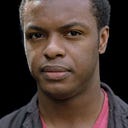Member-only story
Thinking English: Defining The Indigenous Briton
A week ago, I someone said to me “You don’t look British.” It’s not the first time this has happened but it made me think.
When I was a boy, going to school in Northamptonshire, I saw too much of white culture’s toxicities for someone of my age, a boy forced to look at the world through othered visions so young. I was raised by parents who were born in the late 1960s / early 1970s, growing up in the 1980s — children of the Windrush Generation made to feel as unwelcome as their parents. Their generation witnessed Apartheid through screens, bricks through windows, NF rallies, Handsworth Revolution and Brixton ablaze in the blur of Babylon.
Even today, I have found my rights to be contested by those who call themselves “English.” Those who claim they’re “pure English,” eulogising what I like to call Blyton’s Britain — afternoon tea, coastal wrecks and cucumber sandwiches. My right to call myself a British citizen is debated (and those of others that look like me as well), especially in a post-Brexit society. I am British — born in Newham, East London (in 1995) raised in Northamptonshire. I am as British as those who debate my right to be here.
Under the veil of British racism, this is the tenor and temper of the times many British people of colour are experiencing. I come from Caribbean grandparents who were at risk of being sent back to Grenada and Jamaica under the Windrush Scandal — created by…
